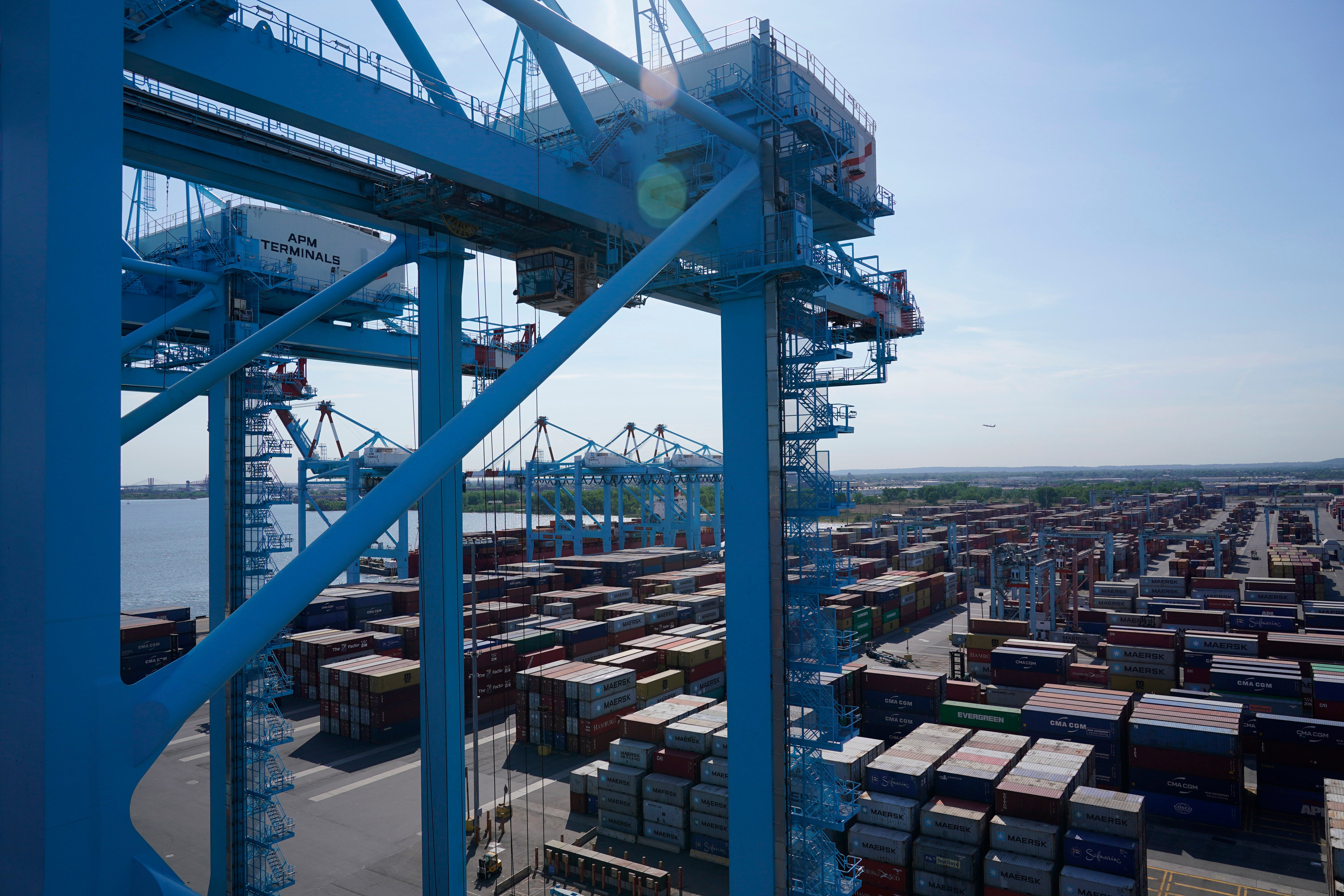US east coast and gulf ports set to close amid worker strike that could strain supply chain
The union representing U.S. dockworkers signaled that 45,000 members will walk off the job at midnight, kicking off a massive strike likely to shut down ports across the East and Gulf coasts

Your support helps us to tell the story
From reproductive rights to climate change to Big Tech, The Independent is on the ground when the story is developing. Whether it's investigating the financials of Elon Musk's pro-Trump PAC or producing our latest documentary, 'The A Word', which shines a light on the American women fighting for reproductive rights, we know how important it is to parse out the facts from the messaging.
At such a critical moment in US history, we need reporters on the ground. Your donation allows us to keep sending journalists to speak to both sides of the story.
The Independent is trusted by Americans across the entire political spectrum. And unlike many other quality news outlets, we choose not to lock Americans out of our reporting and analysis with paywalls. We believe quality journalism should be available to everyone, paid for by those who can afford it.
Your support makes all the difference.The union representing U.S. dockworkers signaled that 45,000 members will walk off the job at midnight, kicking off a massive strike likely to shut down ports across the East and Gulf coasts.
The coming work stoppage threatens to significantly snarl the nation's supply chain, potentially leading to higher prices and delays for households and businesses if it drags on for weeks. That's because the strike by members of the International Longshoremen's Association could cause 36 ports — which handle roughly half of the goods shipped into and out of the U.S. — to shutter operations.
ILA confirmed over the weekend that its members would hit the picket lines at 12:01 a.m. Tuesday. In a Monday update, the union continued to blame the United States Maritime Alliance, which represents the ports, for continuing to “to block the path” towards an agreement before the contract deadline.
“The Ocean Carriers represented by USMX want to enjoy rich billion-dollar profits that they are making in 2024, while they offer ILA Longshore Workers an unacceptable wage package that we reject," ILA said in a prepared statement. “ILA longshore workers deserve to be compensated for the important work they do keeping American commerce moving and growing."
ILA also accused the shippers of “killing their customers" with sizeable price increases for full containers over recent weeks. The union said that this will result increased costs for American consumers.
The Associated Press reached out to a USMX spokesperson for comment.
If drawn out, the strike would led would force businesses to pay shippers for delays and cause some goods to arrive late for peak holiday shopping season — potentially impacting delivery of anything from toys or artificial Christmas trees, to cars, coffee and vegetables. Americans could also face higher prices as retailers feel the supply squeeze.
ILA members are demanding higher wages and a total ban on the automation of cranes, gates and container-moving trucks used in the loading or unloading of freight.
The coming strike by the ILA workers will be the first by the union since 1977.
If a strike were deemed a danger to U.S. economic health, President Joe Biden could, under the 1947 Taft-Hartley Act, seek a court order for an 80-day cooling-off period. This would suspend the strike.
All eyes are on what, if any, action the adminstration might take — particularly just weeks ahead of a tight presidential election. But Biden has signaled that he will not exercise this power.
During an exchange with reporters on Sunday, Biden said “no” when asked if he planned to intervene in the potential work stoppage.
“Because it’s collective bargaining, I don’t believe in Taft-Hartley,” Biden said referring to a 1947 law that allows the president to intervene in labor disputes that threaten the nation’s health or safety.